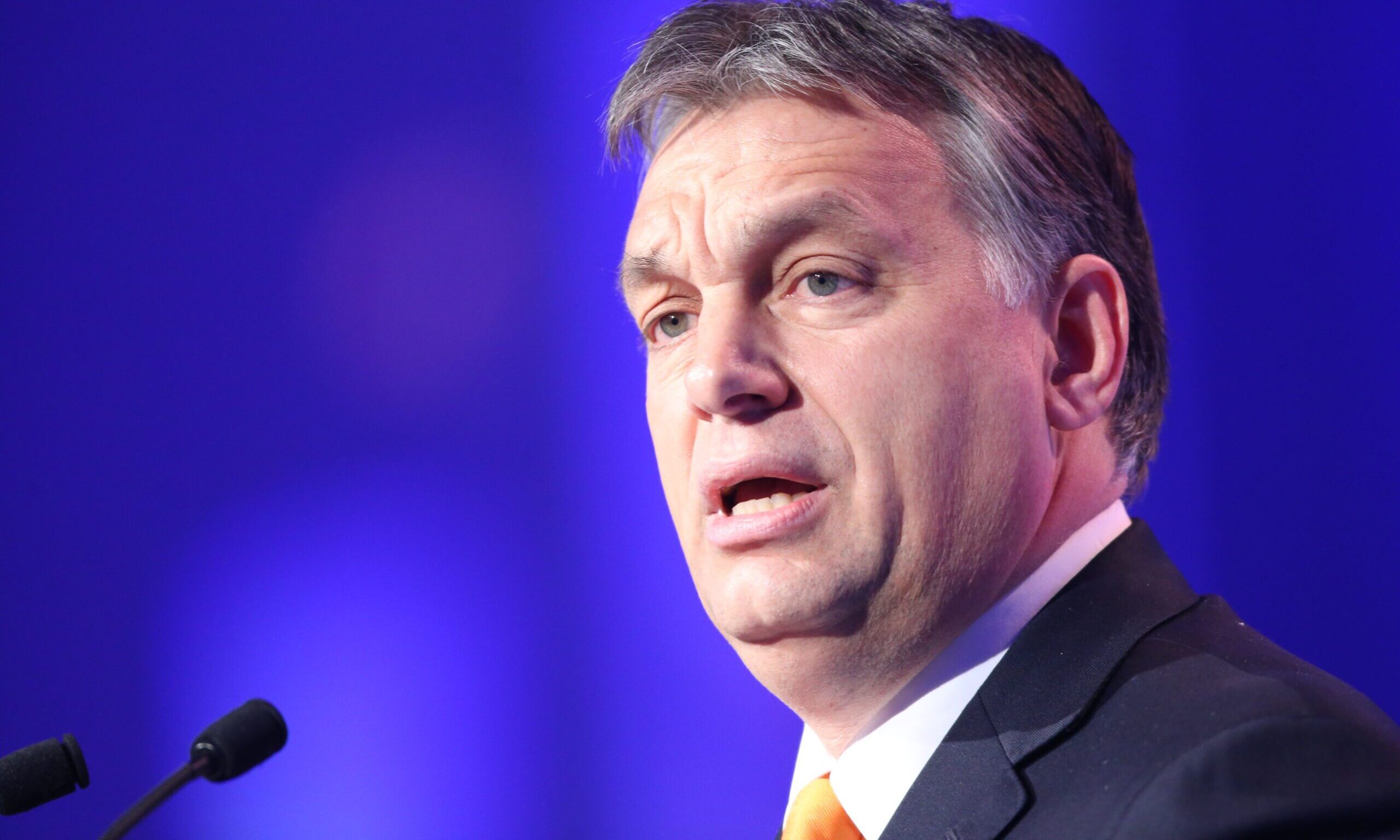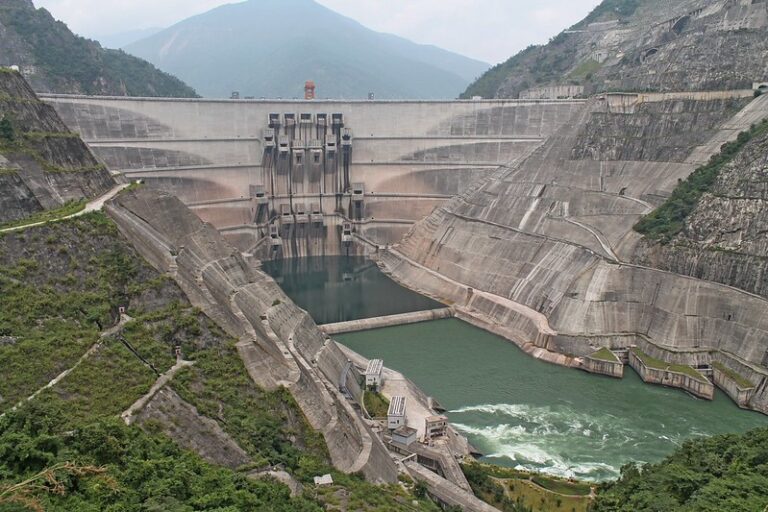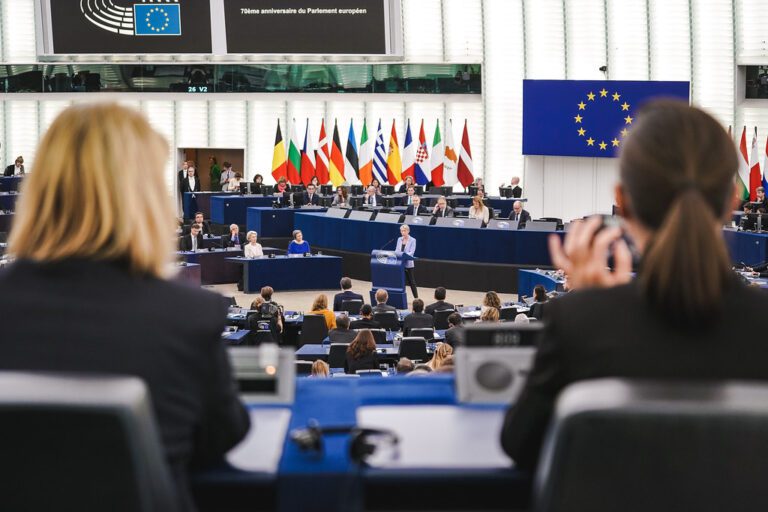
During the 3rd Belt & Road Forum in October 2023, Orbán secured more investments and new cooperation agreements with the China-based tech giant Huawei. The Hungarian prime minister is committed to deepening ties with Beijing despite domestic concerns and warnings from other EU and NATO countries against Chinese presence in strategic sectors.
On October 17-18, the 3rd Belt & Road Forum took place in Beijing, with Hungary’s Prime Minister Viktor Orbán as the only EU leader in attendance. Despite the infamous handshake between Orbán and Putin grabbing the headlines, the key developments in Beijing were related to Sino-Hungarian ties.
Pushing Through Despite Obstacles
Orbán started off his attendance with an opening address echoing the common talking points of his government on the decline of the West and Hungary’s special wisdom to maintain connectivity between the East and the West. This was followed by a bilateral meeting between the Chinese and Hungarian delegations led by Xi Jinping and Orbán, where the two sides assured each other of their strong friendship and determination to develop BRI-based relations further. During his address at the bilateral meeting, Xi called Orbán an “old friend” (lao pengyou 老朋友), praising him for consecutively attending all three BRI forums. The Hungarian leader responded by assuring Xi that regardless of any political debates within the EU, Hungary will maintain its participation in the BRI. Orbán also held personal talks with China’s Premier Li Qiang. To impress his hosts even more, he emphasized that Hungary was the first Soviet Bloc country to recognize the People’s Republic in 1949 and has been committed to the “One China Principle” ever since.
Beyond the usual pleasantries of strong friendship and “win-win” cooperation, Orbán had a lot to straighten out with Beijing due to delays and controversies surrounding China’s major investment projects in Hungary. The flagship BRI project, the Budapest-Belgrade railway, is facing significant delays due to difficulties with EU standardization and a lack of appropriate technology provided by the Chinese investor to overcome these.
Since its announcement in 2013, the project has been known for its high costs (ca. €2.3 billion) and risk of leading to indebtedness, due to ca. 85 percent of its costs being paid from Chinese loans. Currently, after several postponements, the officially stated date for finalizing the project is 2025. The realization of the railway project has clear links to the construction firm of Lőrinc Mészáros, Orbán’s childhood friend and close ally, currently the richest person in Hungary.
According to a recent newsletter by VSquare, referring to government-close sources, Xi pressured Orbán in Beijing to find a solution for jointly finishing the project with the Chinese contractor, apparently to avoid having Hungary seek other partners and “losing face.”
Another, and in financial terms even more significant, Chinese investment project is the €7.3 billion battery plant of the China-based Contemporary Amperex Technology Co., Limited (CATL), currently under construction near Debrecen.
The project is also not without its problems. The environmental and societal risks of the major battery plant have caused frustration and protests among locals, NGOs, and academics in Hungary, with critical voices emerging even among mayors from Obán’s ruling Fidesz party. A recent study by the Washington-based think tank Foundation for Defense of Democracies (FDD) also warns of the risks related to CATL’s close ties to the CCP. As the study contends, CATL plays a major role in the Chinese government’s outward technological expansion strategy, creating potential dependencies on the Chinese state and risks for national security.
No Way but Huawei
According to Chinese official sources, at the 3rd BRI Forum, China and Hungary signed a second list of priority BRI projects to be jointly realized and four memoranda of understanding (MoUs). The list of the priority BRI projects has not been disclosed in any official sources available online. The latter four involved Hungary’s Ministry of Foreign Affairs and Trade, Hungary’s Ministry for Economic Development, as well as China’s Ministry of Foreign Affairs and Trade, the Ministry of Industry and Information, and the Industrial and Commercial Bank of China (ICBC). The four MoUs were titled as follows (translated from Chinese): “on jointly promoting industrial and investment cooperation,” “on interaction in the field of economic development policy,” “on strengthening digital economic cooperation,” and “on cooperation in green and low-carbon development.”
In addition to participating in the BRI Forum, Orbán and Hungary’s Minister for Economic Development Márton Nagy also visited the Huawei headquarters in Shenzhen. There, Nagy and the CEO of Huawei in Hungary and the Western Balkans Gao Weijie signed an MoU on enhancing the strategic cooperation started in 2013. According to Hungary’s state news wire MTI, “Under the [above-mentioned] agreement, Huawei will establish ties with players in Hungary’s technology ecosystem […], while partnering with professional forums like the 5G Coalition and the Artificial Intelligence Coalition on advancing digital transformation.”
Meanwhile, on October 18, Hungary’s telecommunication giant 4iG, run by Orbán-friendly businessman Gellért Jászai, also signed a separate MoU with Huawei in Beijing. This MoU pledges for the two sides to cooperate in “areas of 5G development and mobile communications, as well as fixed line network development and technical research, so [it] can provide services in data centre, cloud, data connectivity, IT infrastructure,” as stated on 4iG’s LinkedIn page.
4iG’s ambitions are not restricted to Hungary, as it also plans to expand into the Western Balkans and beyond. After acquiring Telenor Montenegro in 2021, it is now a major stakeholder in Montenegro’s telecommunications sector. The company has also recently signed agreements to build a subsea cable between Albania and Egypt, as reported on its website. It is hereby worth mentioning that control over subsea cables is one of the key elements of the emerging global US-China tech rivalry. Reportedly, the US has already voiced concerns about Hungary’s deepening ties with Huawei, citing security risks.
The recently announced plans show that the Hungarian government is unwilling to back down from deepening its ties with Huawei, despite restrictions and warnings from other EU and NATO countries over security risks. The question is thus how long it will be able to get away with this strategy, without seriously threatening its ties with key allies and partners. Furthermore, as Hungary’s state-backed 4iG is expanding its influence beyond the country’s borders, apparently also relying on Huawei technology, questions about broader regional impact become relevant as well.
The Underestimated Potential of the Orbán-Xi Friendship
During its 13 years in power since 2010, Orbán’s regime has significantly transformed Hungary’s domestic discourse about the country’s foreign relations and its role in the global order. In recent years, a number of state-supported think tanks and media outlets emerged in Hungary to openly promote anti-Western and pro-Chinese/pro-Russian narratives of global affairs, and some of them also have links to the Chinese government.
Until recently, however, even renowned scholars of China-Hungary relations argued that the seemingly close relationship is more about rhetoric than about substance. With the recent developments of securing the biggest foreign investment project in the country’s history from China’s CATL and strengthening cooperation with Huawei in 5G and other strategically important technologies, this is about to change. It is now more clear than ever that the emergence of the EU and NATO member Hungary as a hub of Chinese influence in the very heart of Europe should be a concern for decision-makers on the continent and across the Atlantic.
Written by
Sebestyén Hompot
HompotSebestyenSebestyén Hompot, Ph.D., was born in Hungary and currently works at the Prague University of Economics and Business (VŠE) as a Researcher in the Horizon EU Project "European Hub for Contemporary China" (EuroHub4Sino), focusing on "China's multilateral institutions/frameworks and global governance." Hompot is also a Research Fellow at the Bratislava-based, transnational think tank Central European Institute of Asian Studies (CEIAS).


